Keynote Speakers
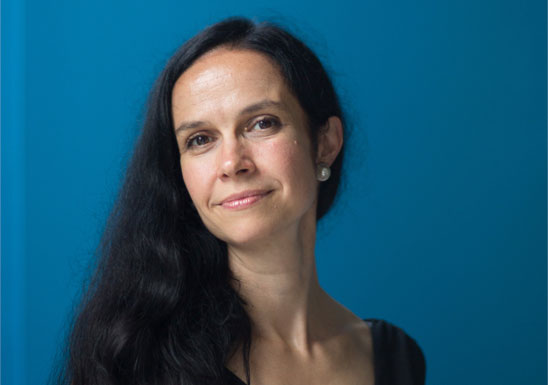
Muriel Médard, Massachusetts Institute of Technology, USA
Title: Guessing Random Additive Noise Decoding (GRAND) or how to stop worrying about error-correcting code design
Abstract: To maintain data integrity in the face of network unreliability, systems rely on error-correcting codes. System standardization, such as has been occurring for 5G, is predicated on co-designing these error-correcting codes and, most importantly, their generally complex decoders, into efficient, dedicated and customized chips. In this talk, we show that this assumption is not necessary and is has been leading to significant performance loss. We describe “Guessing Random Additive Noise Decoding,” or GRAND, by Duffy, Médard and their research groups, which renders universal, optimal, code-agnostic decoding possible for low to moderate redundancy settings.
Moreover, recent work with Yazicigil and her group has demonstrated that such decoding can be implemented with extremely low latency in silicon. GRAND enables a new exploration of codes, in and of themselves, independently of tailored decoders, over a rich family of code designs, including random ones. Surprisingly, even the simplest code constructions, such as those used merely for error checking, match or markedly outperform state of the art codes when optimally decoded with GRAND. Without the need for highly tailored codes and bespoke decoders, we can envisage using GRAND to avoid the issue of limited and sub-optimal code choices that 5G encountered, and instead have an open platform for coding and decoding.
Bio: Muriel Médard is the NEC Professor of Software Science and Engineering in the Electrical Engineering and Computer Science (EECS) Department at MIT, where she leads the Network Coding and Reliable Communications Group in the Research Laboratory for Electronics at MIT and Chief Scientist for Steinwurf, which she has co-founded. She obtained three Bachelors degrees (EECS 1989, Mathematics 1989 and Humanities 1991), as well as her M.S. (1991) and Sc.D (1995), all from MIT. Muriel is a Member of the US National Academy of Engineering (elected 2020), a Member of the German National Academy of Sciences Leopoldina (elected 2022), a Fellow of the US National Academy of Inventors (elected 2018), American Academy of Arts and Sciences (elected 2021), and a Fellow of the Institute of Electrical and Electronics Engineers (elected 2008). She holds Honorary Doctorates from the Technical University of Munich (2020) and from The University of Aalborg (2022). Muriel was co-winner of the MIT 2004 Harold E. Egerton Faculty Achievement Award and was named a Gilbreth Lecturer by the US National Academy of Engineering in 2007. She received the 2017 IEEE Communications Society Edwin Howard Armstrong Achievement Award and the 2016 IEEE Vehicular Technology James Evans Avant Garde Award. Muriel was awarded the 2022 IEEE Kobayashi Computers and Communications Award. She received the 2019 Best Paper award for IEEE Transactions on Network Science and Engineering, the 2018 ACM SIGCOMM Test of Time Paper Award, the 2009 IEEE Communication Society and Information Theory Society Joint Paper Award, the 2009 William R. Bennett Prize in the Field of Communications Networking, the 2002 IEEE Leon K. Kirchmayer Prize Paper Award, as well as nine conference paper awards. Most of her prize papers are co-authored with students from her group.
Muriel has served as technical program committee co-chair of ISIT (twice), CoNext, WiOpt, WCNC and of many workshops. She has chaired the IEEE Medals committee, and served as member and chair of many committees, including as inaugural chair of the Millie Dresselhaus Medal. She was Editor in Chief of the IEEE Journal on Selected Areas in Communications and has served as editor or guest editor of many IEEE publications, including the IEEE Transactions on Information Theory, the IEEE Journal of Lightwave Technology, and the IEEE Transactions on Information Forensics and Security. Muriel was a member of the inaugural steering committees for the IEEE Transactions on Network Science and for the IEEE Journal on Selected Areas in Information Theory. She currently serves as the Editor-in-Chief of the IEEE Transactions on Information Theory. Muriel was elected president of the IEEE Information Theory Society in 2012, and serves on its board of governors, having previously served for eleven years. Muriel received the inaugural 2013 MIT EECS Graduate Student Association Mentor Award, voted by the students. She set up the Women in the Information Theory Society (WithITS) and Information Theory Society Mentoring Program, for which she was recognized with the 2017 Aaron Wyner Distinguished Service Award. She served as undergraduate Faculty in Residence for seven years in two MIT dormitories (2002–2007). Muriel was elected by the faculty and served as member and later chair of the MIT Faculty Committee on Student Life and as inaugural chair of the MIT Faculty Committee on Campus Planning. She was chair of the Institute Committee on Student Life. She was recognized as a Siemens Outstanding Mentor (2004) for her work with High School students. She serves on the Board of Trustees since 2015 of the International School of Boston, for which she is treasurer. She serves on the Nokia Bell Labs Technical Advisory Board. Muriel has over sixty US and international patents awarded, the vast majority of which have been licensed or acquired. For technology transfer, she has co-founded CodeOn, for which she consults, and Steinwurf, for which she is Chief Scientist. Muriel has supervised over 40 master students, over 20 doctoral students and over 25 postdoctoral fellows.
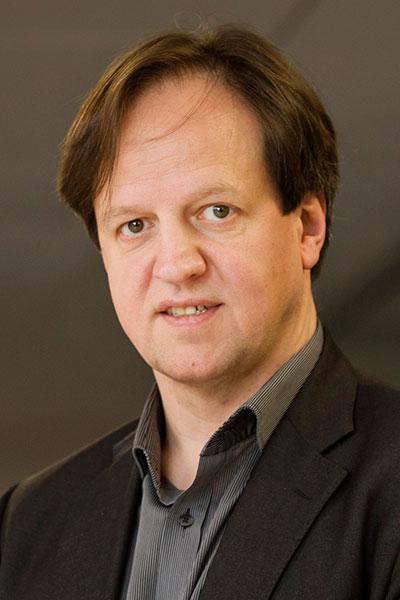
Harald Haas, The University of Strathclyde, UK
Title: Why Optical Wireless Communication is Ready for 6G!
Abstract: Security, energy efficiency, data density and peak data rates of up to 1 Tbps are some of the key performance indicators (KPIs) of 6G. With current radio frequency (RF) technologies it will be difficult to advance all these KPIs jointly due to fundamental spectrum limitations in the RF domain. What is needed to achieve step-change improvements in all those areas of interest, is substantial new spectrum, devices at high optical-to-electrical (OE) conversion efficiencies and the ability to spatially control signal radiation tightly and at low energy cost. To this end, OWC can leverage decades of development of optical devices for optical fiber communications. We will review recent advancements of mobile, multiuser wireless networks that are fundamentally based on the optical spectrum. Moreover, we will provide a status of IEEE 802.11bb standardization activities and discuss existing challenges and the road ahead.
Bio: Professor Harald Haas received the Ph.D. degree from The University of Edinburgh in 2001. He is a Distinguished Professor of Mobile Communications at The University of Strathclyde/Glasgow, Visiting Professor at the University of Edinburgh and the Director of the LiFi Research and Development Centre. Prof Haas set up and co-founded pureLiFi. He currently is their Chief Scientific Officer. His research interests are in cellular communications, spatial modulation and optical wireless communications. He has co-authored more than 600 conference and journal papers and holds more than 40 patents. He has been listed as highly cited researcher by Clarivate/Web of Science since 2017. In 2016, he received the Outstanding Achievement Award from the International Solid State Lighting Alliance. In 2019 he was recipient of IEEE Vehicular Society James Evans Avant Garde Award. In 2017 he received a Royal Society Wolfson Research Merit Award. In 2021, he received the Enginuity The Connect Places Innovation Award. In 2022 he received a Humboldt Research Award for his research achievements. He is a Fellow of the IEEE, a Fellow of the Royal Academy of Engineering, a Fellow of the Royal Society of Edinburgh and a Fellow of the Institution of Engineering and Technology (IET).
Invited Speakers
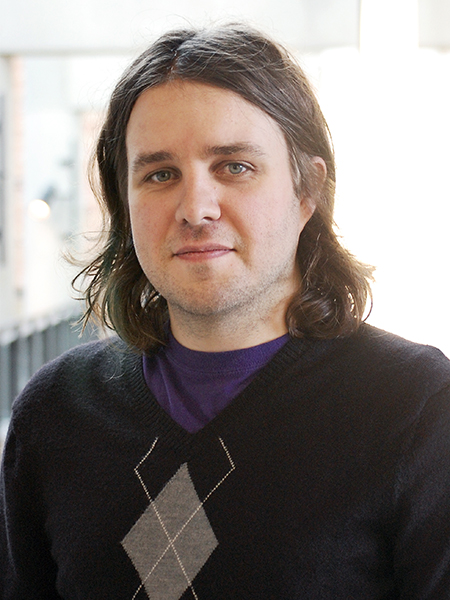
Kurtis Heimerl, University of Washington, USA
Title: Reclaiming the Internet: A Journey to Community-Held Cellular Infrastructure
Abstract: Mobile network operators (MNOs) are a critical component of today’s Internet access landscape. Originally borne of wireline voice telephony access, innovations in wireless data connectivity (such as GPRS and LTE) have enabled these operators to become the world’s dominant Internet providers, connecting more people to the Internet than wireline networks. However, the increasing centralization of the MNO ecosystem (down to just three providers in the US) is in contrast to the general design goals of the internet, which was built to allow multiple regional autonomous systems to work together to provide connectivity. In this talk we will discuss my group’s ongoing attempts to leverage advances in wide area technology, specific open source LTE and NR, to recreate distributed access networks and help small organizations provide connectivity to their communities while still achieving the at-scale efficiencies of modern MNOs. This journey starts with an MNO partnership for GSM networks in the rural Philippines and continues in our current work with local NGOs on urban NR infrastructure.
Bio: Kurtis Heimerl is an associate professor of Computer Science at the University of Washington working on Information and Communication Technology and International Development (ICTD), specifically universal Internet access. Before that, he received his PhD from the University of California, Berkeley, working under Professors Eric Brewer and Tapan Parikh. Kurtis cofounded Endaga, which joined Facebook in 2015 and has also published widely, including top conferences such as ICTD, CSCW, CHI, MobiCom, and NSDI. He was a recipient of the 2014 MIT “35 under 35” award, the 2018 UW early career Diamond Award, and has won paper awards at CHI, NSDI, COMPASS, ASSETS, and DySPAN.
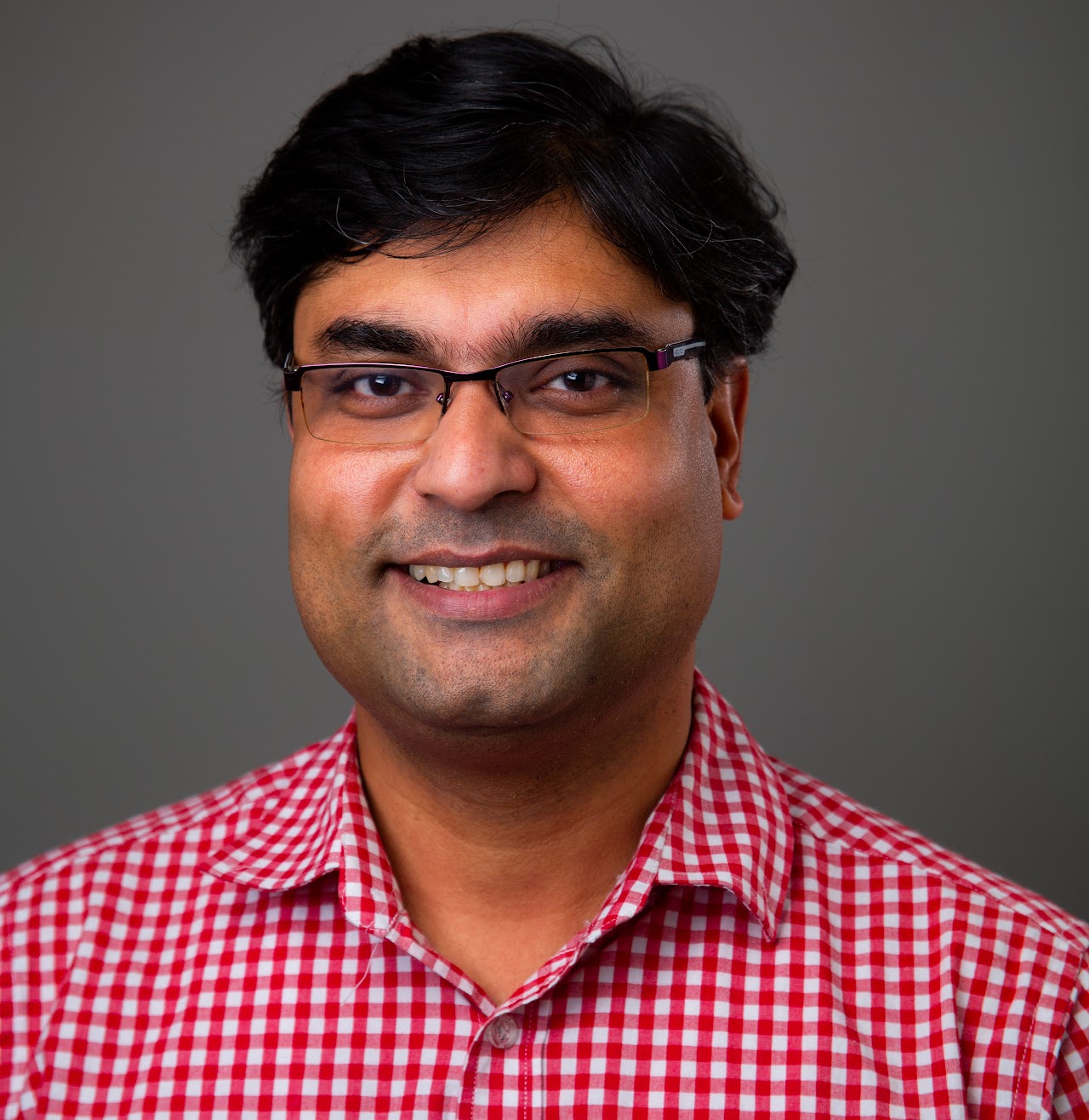
Md Yusuf Sarwar Uddin, University of Missouri Kansas City, USA
Title: Accelerating AI Inference on 5G Edge
Abstract: Fifth generation cellular networks (aka, 5G networks) offer unique opportunities for running AI applications deployed on end users’ devices, such as smartphones, smart devices, and virtual-reality (VR) headsets. Central to this capability is MEC (multi-access Edge Computing) — the provision of hosting cloud-grade computing resources (CPU/GPU machines, known as edge servers) closer to end users (servers can be as close as base-stations at 1-hop). This enables resource-constrained devices to offload heavy computation to powerful edge servers within a short round-trip delay. This is particularly helpful in running compute-heavy AI applications, where a small portion of a large AI model can run on the device and the rest run on the edge server for faster AI model execution. In this talk, I will cover how this model splitting can be utilized in several contexts, such as early detection of input anomaly (out of distribution) and resource-efficient multi-task learning (MLT) model execution.
Bio: Dr. Md Yusuf Sarwar Uddin is currently an Assistant Professor at the University of Missouri-Kansas City (UMKC) in the United States. His research interests lie in broader areas of systems and networking. He likes to design and build networked systems and formally analyze their operation and performance, especially when they operate under resource-constrained settings. His specific research focus is on distributed computing applied in the areas of Internet of Things (IoT), cyber-physical systems (CPS), mobile computing, and Big Data/AI systems. Dr. Sarwar Uddin obtained his Ph.D. in Computer Science from the University of Illinois-Urbana Champaign and got his Master’s and Bachelor’s degree both in Computer Science and Engineering from Bangladesh University of Engineering and Technology (BUET). His website is: https://m.web.umkc.edu/mu9b4/

Endadul Hoque, Syracuse University, USA
Title: Network (In)security: Leniency in Protocols’ Design, Code and Configuration
Abstract: Protocols are one of the founding pillars of network communication. Given their importance, protocols have received great attention not only from the research community but also from adversaries. Protocols, particularly their implementations, have been lucrative targets for adversarial attacks to induce network insecurity by compromising the guarantees that these implementations should provide. Most of these attacks can be traced back to the leniency in their design, code, or configuration. Finding leniency in implementations is challenging as these lenient instances are primarily tied to the semantics of the protocol and thus demand for techniques unlike existing approaches that we use for finding low-level memory corruption bugs.
In this talk, I will discuss our experience and lesson learned in detecting leniency in different layers of the TCP/IP network protocol stack. First, I will show how leniency in the design of loss-based TCP congestion control schemes can be exploited by an attacker to manipulate the victim into taking actions favorable for the attacker. I will introduce our model-guided fuzzing approach to find such manipulation attacks in different TCP implementations part of mainstream operating systems (e.g., Linux, Windows). Next, I will focus on leniency in code, where an implementation exhibits noncompliance with its design. Specifically, I will talk about how lenient implementations of X.509 certificate validation in SSL/TLS libraries can be exploited by an attacker to mount impersonation attacks. Finally, I will highlight that it is not always the protocol’s design or code, sometimes it is humans: the users and/or the IT (Information Technology) administrators. Specifically, I will present our multifaceted measurement study where we examined the WPA2-Enterprise Wi-Fi configurations prescribed in tertiary education institutes (TEIs) around the world. I will share our findings about the widespread insecure practices that can leave users of these institutes open to credential theft.
Bio: Endadul Hoque is an Assistant Professor at Syracuse University (SU) in the Department of Electrical Engineering and Computer Science. His research interests are broadly in security of computer networks and systems, with a focus on automated vulnerability detection, applied program analysis, and building resilient systems. At SU, he is the director of the Security of Networked Systems (SYNE) lab. Before joining SU, he was an Assistant Professor at Florida International University (FIU) and a Postdoctoral Research Associate at Northeastern University. He received his Ph.D. in Computer Science from Purdue University. He received the Teaching Fellowship Award and the Bilsland Dissertation Fellowship Award at Purdue, a distinguished paper award at NDSS 2018, and a Google Research Scholar Award in 2022.
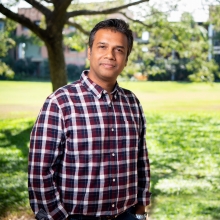
Sami Azam, Charles Darwin University, Australia
Title: Artificial Intelligence in Medical Domain: Applications and Limitations
Abstract: Machine learning has truly evolved over the years in its ability to sift through complex multi-variate and multi-dimensional datasets with both temporal and non-temporal properties. It is poised to reshape patient safety and healthcare quality by improving the experiences of both clinicians and patients through various tools for diagnosis, prediction, forecasting (progression), and recommendations. However, performance evaluation of such approaches are limited to curated and clean benchmark datasets that may not reflect real-world situations. And most machine learning and deep learning algorithms usually operate as black-box models (or non-transparent) that gather bias during the training process: supervised or unsupervised, making it difficult to understand the actual relations in the data. However, machine learning algorithms usually operate as black-box models (or non-transparent) that gather bias during the training process: supervised or unsupervised, making it difficult to understand the actual relations in the data. For medical AI systems to be used in routine clinical care, it is crucial to navigate through the technical and human-centered challenges associated with various potential medical AI systems and understand ‘how to provide interpretability’ about what the machine learning model is learning or extracting from the data? What are the relations governing the data? Why are certain decisions made by the model? etc. Interpretability can improve confidence in using AI-based medical systems for various decisions and recommendations.
Developing and understanding different machine learning/DL-based medical systems such as image-based, numerical and categorical-based (stationary and progressing), and text-based systems for diverse diseases and needs, and using these models and discussions with medical experts, we can develop model-specific (problem-specific) interpretability methods that extract hidden rules in the data and provide a detailed analysis of how the inputs and outputs to and from a model are behaving. To do so, the research requires access to a large multi-variate and multi-dimensional dataset that captures real-world (or natural) characteristics and medical experts who can share their valuable insights about disease and what type of interpretability a system should have.
Bio: Dr Sami Azam is currently a Senior Lecturer and Course Coordinator for Information Technology at Charles Darwin University. He holds a PhD in Biomedical Engineering and his research was to assist with the detection of hearing disorders caused by otitis media. His impactful research attracted media attention covered by NT News on the 21st of May 2016. His doctoral research was instrumental in establishing the Biomedical Engineering and Health Informatics Laboratory and Research Group at CDU. He has been constantly producing high-quality research and scholarly works at both national and international conferences as well as journals. He is actively pursuing multidisciplinary research ranging from IT, Biomedical Engineering and Health Informatics to cutting-edge Cybersecurity. His research expertise includes machine learning, artificial intelligence, deep learning, advanced signal processing, medical image and data analysis, and artificial intelligence techniques to detect and classify a range of data security and IoT threats. He is doing collaborative research with the Menzies School of Health to make models in clinical decision support for chronic disease surveillance and management in the Northern Territory. He has been a presenter in workshops and seminars on research ideas and grant propositions and the recipient of the Early Career Researcher Award, CDU, 2021. He has more than 10 years of teaching experience and he received several awards for his outstanding contributions to learning and teaching. He has been spearheading CDU’s largest community event, the IT Code Fair, since 2014. Dr Azam has been an active member of AISA, AAEE, ACS and has been the IEEE NT Student Activities Chair since 2019.


